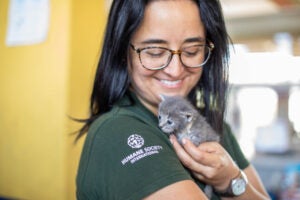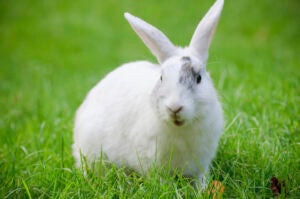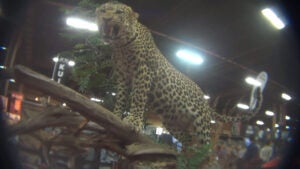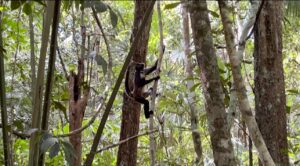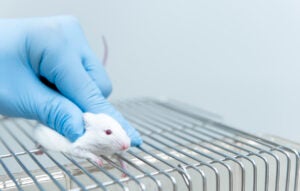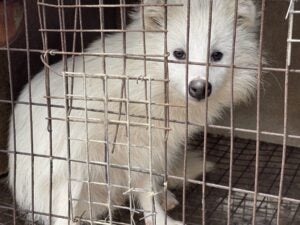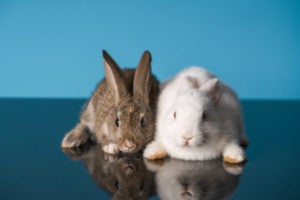
EUROPE—This Saturday marks the 10th anniversary of the European Union’s ban on cosmetic animal testing and trade, and the climax of a decade-long campaign by Humane Society International, its affiliates and partners to extend the cruelty-free cosmetics model across the globe. Humane Society International and other non-governmental organizations, together with a growing number of forward-looking beauty brands, have been instrumental in securing more than two dozen national and state animal testing or sales restrictions. Now, they are calling on countries around the globe to follow suit.
Aviva Vetter, senior manager of Humane Society International’s global cosmetics campaign, said: “We are immensely proud of how far the beauty sector has evolved since launching our #BeCrueltyFree campaign, and the life-saving impact it has had for untold numbers of animals in countries that outlawed animal testing for cosmetics, or that have moved away from such testing being mandatory. Our aim is to build on this progress by securing similar national measures in additional key markets, including Canada, Brazil, Chile, South Africa and Southeast Asia, over the coming year. It’s time to consign cosmetics testing on animals to oblivion once and for all.”
Since its 2012 launch, Humane Society International’s global campaign has produced a wave of national bans or restrictions on animal testing for cosmetics—from India, South Korea, Taiwan, New Zealand, Australia, Guatemala, Mexico, and just this past week, Brazil. China, long the only country to expressly require animal testing for cosmetic products as a condition of sale or import, has gradually relaxed its requirements since 2014. With 43 national bans currently in force an end to this needless and cruel practice is finally in sight.
The most iconic feature of HSI’s campaign is its charismatic spokesbunny Ralph, who became a worldwide sensation in 2021 following release of the stop-motion film Save Ralph. This docu-style film shines a poignant light on the plight of animals in testing labs through a creative collaboration between HSI, Hollywood filmmakers and animators, and a star-studded, multilingual voice cast featuring Oscar-winner Taika Waititi, Ricky Gervais, Zac Efron, Olivia Munn, Tricia Helfer, Pom Klementieff Denis Villeneuve, George Lopez Rosario Dawson, Wilmer Valderrama, ,Rodrigo Santoro , Diem My Vu and H’Hen-Nie, who brought Ralph and his friends to life in English, French, Spanish, Portuguese and Vietnamese. The film’s viral popularity led to more than 825 million #SaveRalph tags and homages on TikTok, more than 150 million film views on social platforms, and inspired more than 5 million people to take action to help by signing HSI petitions. Save Ralph has gone on to win numerous prestigious awards, including the Cannes Lions Grand Prix for Good award and two Webby awards.
Leadership by European lawmakers, NGOs and other stakeholders in pioneering a cruelty-free innovation model for the cosmetics sector inspired not only Humane Society International’s transformative global campaign, but the creation of a new generation of scientific tools for making safety decisions without animal testing—a true win for everyone.
Facts:
- Humane Society International launched its global #BeCrueltyFree campaign in 2012 in partnership with the Humane Society of the United States, Humane Society Legislative Fund and Lush Cosmetics.
- Since 2019, other industry leaders have teamed up with Humane Society International through the Animal-Free Safety Assessment Collaboration to advance cosmetics animal testing bans in key global beauty markets, including Unilever, Procter & Gamble, Avon Products Inc., L’Oréal and Johnson & Johnson.
- These and other Animal-Free Safety Assessment Collaboration members have also developed a state-of-the-art Master Class in Animal-Free Cosmetic Safety Assessment to build confidence, capacity and global use of non-animal science in safety decision-making.
- Humane Society International would like to express its heartfelt thanks to all our #SaveRalph collaborators, including writer/director/editor Spencer Susser; producers Jeff Vespa and Lisa Arianna; puppet-makers and set designer Andy Gent and the team at arch Film and Arch Model Studios; lead animator Tobias Fouracre, DP Tristan Oliver, and our incredible voice cast of Taika Waititi, Ricky Gervais, Zac Efron, Olivia Munn, Pom Klementieff, Tricia Helfer, Denis Villeneuve, George Lopez, Rosario Dawson, Wilmer Valderrama, Denis Villeneuve, Rodrigo Santoro, Diem My Vu and H’Hen-Nie, who donated their time and talent to bring Ralph and his friends to life in English, French, Spanish, Portuguese and Vietnamese.
ENDS
Media contact: Emily Ehrhorn: 202-779-1814; eehrhorn@humanesociety.org

